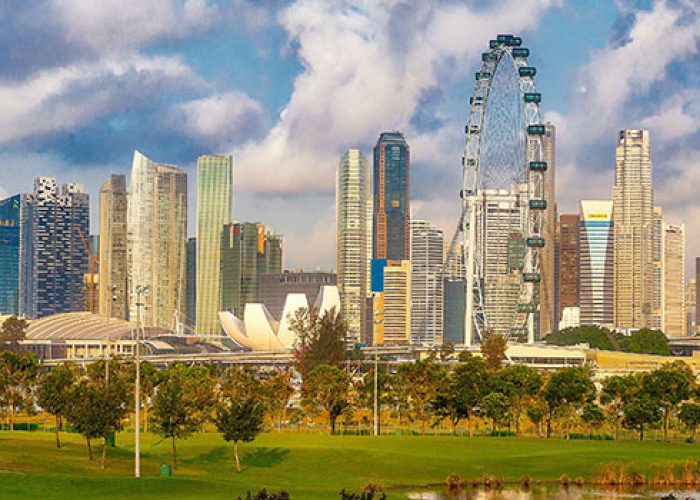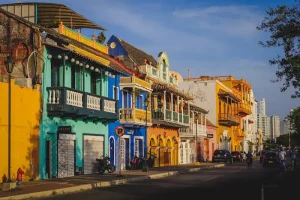There are about 146,000 government positions in Singapore. The positions run from soldiers to economic advisers and everything in between! Interested in these positions? Read on to find out how to land a government job in Singapore!
When private firms in Singapore have reached record retrenchment levels, people are weighing their employment prospects and options. “The iron rice bowl,” as the Civil Service is often called, looks like an increasingly attractive option.
The Civil Service comprises about 85,000 of those government jobs in Singapore. Its employees are responsible for the country’s day-to-day operations. The government of Singapore offers competitive wages/bonuses to attract and reward the best talent.
In addition to the competitive salary, there’s tremendous job security as a civil servant. Once you’ve secured one of these enviable positions, you also gain the coveted ability to rise within the ranks.
Some drawbacks
The main drawback to government careers is that—well, it’s the government. Those who are creative and enjoy understanding the logic behind their work may feel stifled in such roles. The system is designed to function well and for the greater good. If you can live with those trade-offs, you may want to consider joining the Civil Service.
In the face of the pandemic, the Civil Service has managed to continue to maintain relatively undisturbed operations. Although no mid-year bonuses were offered and most positions suffered system-wide pay cuts to weather the storm, job security remains.
In response to the pandemic, MOM has announced some changes to promote Singaporeans within the Civil Service. These changes make it more difficult for foreigners to secure these jobs.
Here’s what you need to know about the ranks of a civil service position.
Civil servants are usually the people who work in government ministries and state organisations. These are some of the organisations under the Singapore government:
- MCI – Ministry of Communication and Information
- MCCY – Ministry of Culture, Community and Youth
- MINDEF – Ministry of Defence
- MOF – Ministry of Finance
- MOM- Ministry of Manpower
- MTI – Ministry of Trade and Industry
People employed by the statutory boards, like the PUB, IRA, or the AVA, are considered “public servants” instead. Those in uniform are also considered “public servants.”

Which Government Job Has The Highest Salary?
The highest-paid government position is held by the Prime Minister. The PM takes home a considerable and controversial sum of $2.2 million each year before bonuses. Below that position, are several other high-ranking officials. They earn wages according to a tiered system of salaries and bonuses.
How Much Do Civil Servants Make?
According to the official pay scale, civil servants are paid the equivalent of 60% of the top earners’ average income in Singapore.
Beyond the initial salary, there are a number of performance-driven bonuses. These are awarded at mid-year or year-end to the service as a whole and to individuals. In addition to the standard yearly salary, civil servants can earn some or all of these bonuses:
- Non-Pensionable Annual Allowance (NPAA): commonly known as the 13th-month bonus or Annual Wage Supplement
- Annual Variable Component (AVC): awarded to all civil servants based on Singapore’s economic performance. The AVC is equivalent to 0-1.5 months of pay and typically comes out to about 1 month. If Singapore achieves exceptional economic performance, a one-off Special Variable payment can be granted.
- Performance Bonus (PB): Ranges from 0-6 months of pay, with an average of 3 months. Based on individual performance and determined by the Prime Minister.
- National Bonus: Ranges from 0-6 months. 3 months are awarded if four socio-economic indicators (economic growth, unemployment, etc.) are met. 6 months if they are far exceeded.
For instance...
A Minister can earn up to 20 months of salary each year. If all bonuses are fully achieved, providing a healthy incentive for going above and beyond. Unofficially, fresh graduates can earn a monthly $3,000 salary when they obtain entry-level government jobs in Singapore.
Mangers on the MX12 pay grade report that they earn between $3,000-$5,900 monthly. Middle Management (MX11) brings home between $4,740 to just over $8,000. Senior Management as MX10 earn $7,000-$11,470 per month. As the top earners, Directors (MX9) collect $11,000-$17,000 a month.
Every few years, legislation increases the base salaries to keep pace with private-sector employment. In addition, consistently good performance will set you up for future promotion and added responsibilities.
How Much Can You Expect To Earn Working for the SAF?
Working for the Singapore Army is a worthwhile consideration if you’re interested in public service. There are four main promotion tracks within the Army. Their respective salaries and bonuses are listed below:
- The Officers Scheme:
- This scheme starts at the Officer Cadet trainee level. Those in the service take home $1,990 per month, and those with a combat vocation earn $2,420. Promotion to 2nd Lieutenant (2LT) will net you a $200-$400 pay increase. The move to Lieutenant (LTA) can effectively double your monthly salary. Once you reach this rank, you’ll make as much as the median Singapore worker does each month.
- Captains (CPT) earn $4,000-$6,000. Major’s can earn up to 50% more. Lieutenant Colonels (LTC) earn 50% more than Majors do. Senior Lieutenant Colonels (SLTC) earn $12,000 or more. Colonels (COL) receive at least $15,000 per month, and Generals make at least $20,000 per month.
- This track provides a $5,000-$20,000 sign-on bonus.
- Military Experts:
- Intelligence experts, medics, and engineers can earn $1,590-$2,580 to start. Experts with university training in the same fields earn more than twice as much, between $3,670 and $5,300 per month.
- There is no accompanying sign-on bonus, but expect generous bonuses pegged to age throughout your career.
Can Foreigners Apply To Work For the Government Of Singapore?
Since the government’s goal is to attract the brightest minds, there are opportunities for foreigners, mainly PRs, to work in government positions. The main exclusions are areas concerning national security; reserved for citizens only. Preference is usually given to citizens unless the foreigner holds exceptional credentials or no viable Singaporean candidates apply.
In light of Covid-19, MOM implemented new rules that make it more challenging to obtain an Employment Pass (EP). The new rules, effective May 2020, raised the salary threshold for an EP from $3,600 to $3,900. The increase is to deter firms, private and otherwise, from seeking outside talent. Thus, ensuring that citizens and optimal employment levels are realised. These figures will increase in the future in an effort to continue to provide jobs for eligible Singapore citizens.
Quotas for S Pass permits that allow foreigners to work have also been reduced. With retrenchments and reduced working hours, hiring locals and PRs stand more attractive.
Which Degree Is Best For Government Jobs?
This depends mainly on which ministry you’d like to join. Here’s what you might consider studying based on current openings.
- Cyber Security Consultant: There is always a demand for tech-savvy individuals in the Singapore government. A bachelor’s degree in Computer Science, Information Systems, or a related field is required for you to apply to this position. Additional security certificates can help to set you apart from other candidates.
- Forensic Technical Officer: To regulate the approval of all therapeutic products in Singapore, you’ll need a Diploma in Biomedical Science or an equivalent degree. There are also Health Promotion activities that will suit you if you have a scientific inclination.
- Inland Revenue Authority of Singapore: Procurement officers need to have a relevant Diploma/Degree, preferably in Business Studies. A degree in Management or Finance, would also serve you well to find entry-level government jobs in Singapore.
There are plenty of opportunities for you to build a government career in Singapore. Review the currently available listings’ requirements to help you prepare. These highly competitive contracts open and close routinely. It does so as new roles are designed, and people are promoted or retire.
Which Degree Is Best for Government Jobs?
There are several gateways to government job portals to begin your search for a government career in Singapore:
- Mycareersfuture.gov.sg is an excellent government job portal. Singaporeans and PRs can look for relevant government jobs in Singapore based on your unique interests and competencies. Under new rules, all job positions (corporate and government) with a monthly salary of up to $20,000 must be advertised here.
- Other government job portals can be found on the main Singapore Government site, gov.sg. This is a quick way to search for entry-level government jobs in Singapore or mid-career options, organised by sector.
- If you know which ministry you’d like to work for, you can start on that site. The Ministry of Manpower, for example, has a government job portal that lists all positions available within that particular Ministry.
- Careers.gov.sg is also a comprehensive government job portal. Simply select the branch that you’d like to look at openings, and you’ll be taken to the official job posting.
Is it Better to Work for the Private or Public Sector?
This answer is subjective, and it depends entirely on what you’d like to get out of your career. While a public service career isn’t right for everyone, some perks make these positions quite enviable. There are also limitations to working for the government that you won’t find in corporate posts, so choose wisely.
Working for the government means seeing that the fundamental needs of the population are met. Education, environmental protection, military defence, and transportation fall under this umbrella. By working for the government, you will have the capacity to make a difference in your post.
A Study Of The Pros & Cons
PROS
CONS
STABILITY: They don’t call the civil service the “iron rice bowl” for nothing. As long as you continue to excel in your role, you can expect high job security. The government needs to function regardless of economic conditions. Thus, making civil servants will always be necessary.
BUREAUCRACY: The stability and consistency that the government provides is also its downfall. Orders come in from high, and they must be followed. There’s plenty of red tape. A lack of communication between levels that can be frustrating too.
CONSISTENCY: Expect to be treated well as an employee. As the people who set the labour laws, the government is predictable and fair. In addition to very competitive wages, you’ll know what to expect going into work each day.
PAPER QUALIFICATIONS: Previously, the competitive job openings relied heavily on paper qualifications rather than the quality of your work. Know that you’ll still be required to submit relevant educational results when you apply. Though, there is now a greater official emphasis on meritocracy.
PROFESSIONAL DEVELOPMENT: Singapore’s civil service has numerous and easily accessible opportunities for continuous professional development. There is an emphasis on workforce development and lifelong learning. Whether you elect to pursue further training or degree courses, the additional education will be yours for the taking.
SERVICE: You’ll sleep well knowing that the services you provide are a vital part of keeping Singapore on the path of growth and excellence. As long as you find a role well suited to your skills and abilities, working for the civil service can be quite fulfilling.
Conclusion
Working for the Singapore government is a badge of honour worn by nearly 146,000 people. This includes 85,000 who work for the various ministries as civil servants. From the PM to entry-level civil servants in Singapore, each employee shoulders a part of the responsibility of the country’s proper functioning.
The government offers job security and stability that is difficult to find in the private sector. Thus, employment with the government can indeed be a rewarding experience.
Civil and public servants are well compensated for their efforts in helping to maintain the country. In addition to all of the perks, you’ll have the satisfaction of helping your fellow countrymen.
And there you have it – a deep dive into all about government jobs in Singapore. We hope this article has provided you with a wealth of information on how to land a government job in Singapore!
If you’re keen to look for other positions, visit GrabJobs to find a job opportunity in Singapore easily!
GrabJobs is a recruitment platform and job site headquartered in Singapore. On our site, you’ll find a wide variety of job listings. Read up here for career resources to help you along!






